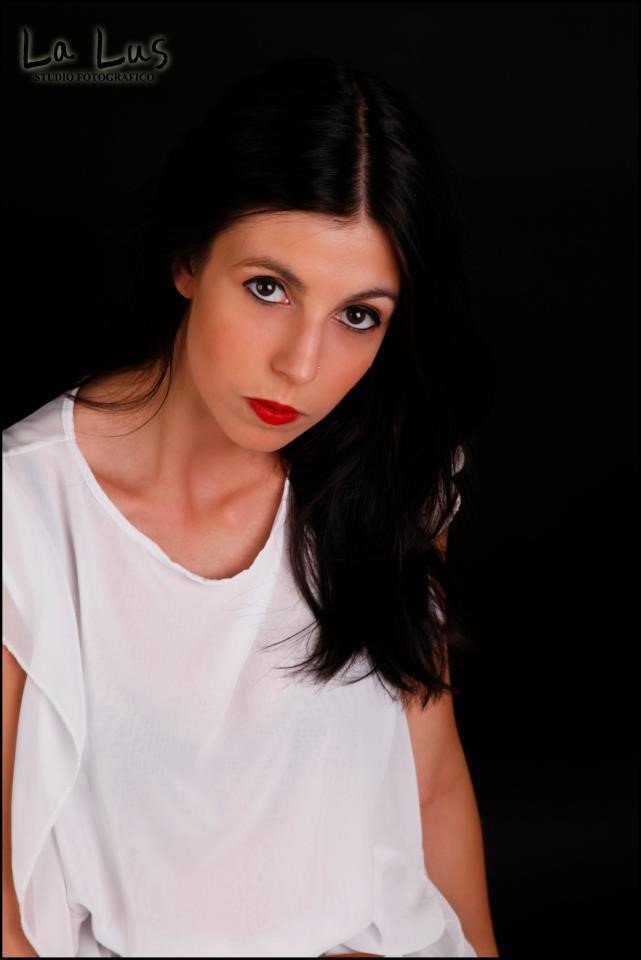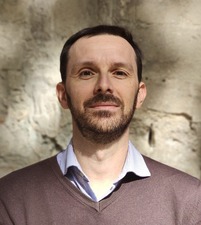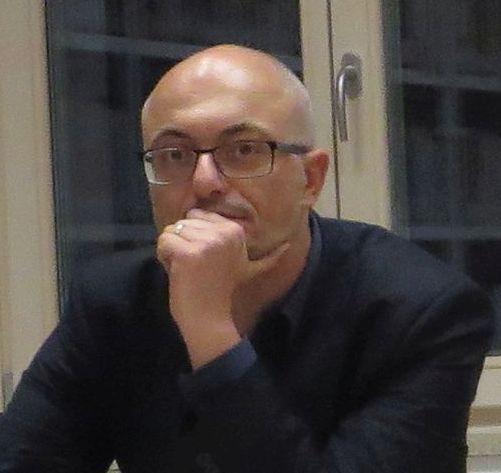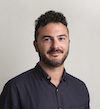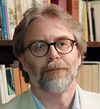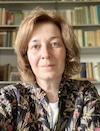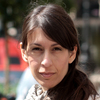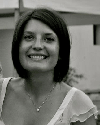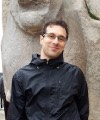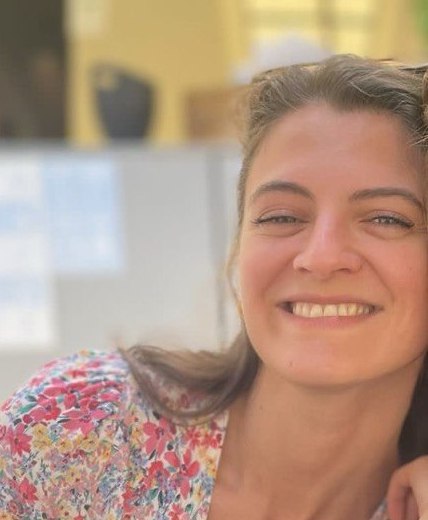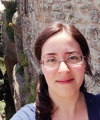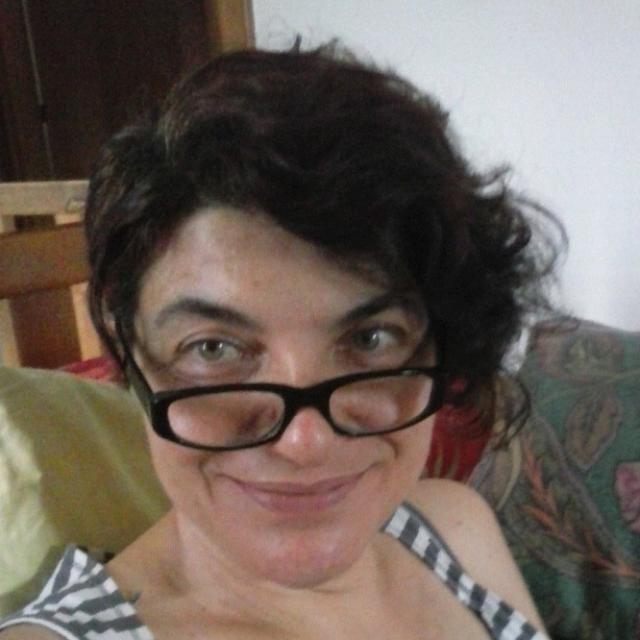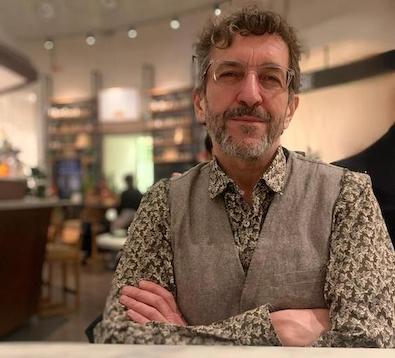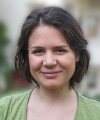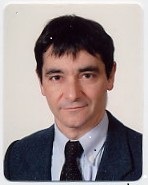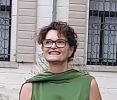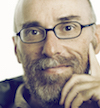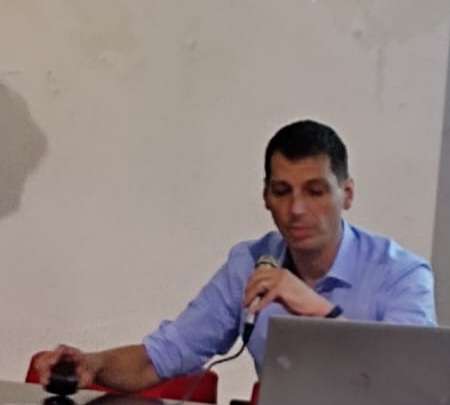Studying at the University of Verona
Here you can find information on the organisational aspects of the Programme, lecture timetables, learning activities and useful contact details for your time at the University, from enrolment to graduation.
Academic calendar
The academic calendar shows the deadlines and scheduled events that are relevant to students, teaching and technical-administrative staff of the University. Public holidays and University closures are also indicated. The academic year normally begins on 1 October each year and ends on 30 September of the following year.
Course calendar
The Academic Calendar sets out the degree programme lecture and exam timetables, as well as the relevant university closure dates..
| Period | From | To |
|---|---|---|
| Sem. IA (31.10.16 sosp.lezioni) | Oct 3, 2016 | Nov 12, 2016 |
| Sem. IB | Nov 14, 2016 | Jan 21, 2017 |
| Sem. IIA | Feb 27, 2017 | Apr 22, 2017 |
| Sem. IIB | Apr 24, 2017 | Jun 10, 2017 |
| Session | From | To |
|---|---|---|
| Sessione d'esami invernale | Jan 23, 2017 | Feb 25, 2017 |
| Sessione d'esame estiva | Jun 12, 2017 | Jul 29, 2017 |
| Sessione d'esami autunnale | Aug 21, 2017 | Sep 23, 2017 |
| Session | From | To |
|---|---|---|
| Sessione di Laurea Estiva | Jul 10, 2017 | Jul 15, 2017 |
| Sessione di Laurea Autunnale | Dec 18, 2017 | Dec 21, 2017 |
| Sessione di Laurea Invernale | Mar 23, 2018 | Mar 29, 2018 |
| Period | From | To |
|---|---|---|
| Festa di Ognissanti | Nov 1, 2016 | Nov 1, 2016 |
| Festa dell'Immacolata | Dec 8, 2016 | Dec 8, 2016 |
| Vacanze Natalizie | Dec 23, 2016 | Jan 7, 2017 |
| Vacanze Pasquali | Apr 14, 2017 | Apr 18, 2017 |
| Festa della Liberazione | Apr 25, 2017 | Apr 25, 2017 |
| Festa dei Lavoratori | May 1, 2017 | May 1, 2017 |
| Festa del Santo Patrono - San Zeno | May 21, 2017 | May 21, 2017 |
| Festa della Repubblica | Jun 2, 2017 | Jun 2, 2017 |
| Vacanze Estive | Aug 14, 2017 | Aug 19, 2017 |
Exam calendar
Exam dates and rounds are managed by the relevant Culture and Civilisation Teaching and Student Services Unit.
To view all the exam sessions available, please use the Exam dashboard on ESSE3.
If you forgot your login details or have problems logging in, please contact the relevant IT HelpDesk, or check the login details recovery web page.
Academic staff
 federica.barboni@univr.it
federica.barboni@univr.it
 giovanni.bernardini@univr.it
giovanni.bernardini@univr.it
 luca.bochicchio@univr.it
luca.bochicchio@univr.it
 evita.calabrese@univr.it
evita.calabrese@univr.it
 monica.cristini@univr.it
monica.cristini@univr.it
 giacomo.girardi@univr.it
giacomo.girardi@univr.it
 paolacarmela.labarbera@univr.it
paolacarmela.labarbera@univr.it
Maganuco Anna Maria Grazia Rita
 anna.maganuco@univr.it
anna.maganuco@univr.it
 irene.reginato@univr.it
irene.reginato@univr.it
 alberto.scandola@univr.it
alberto.scandola@univr.it
Study Plan
The Study Plan includes all modules, teaching and learning activities that each student will need to undertake during their time at the University.
Please select your Study Plan based on your enrollment year.
1° Year
| Modules | Credits | TAF | SSD |
|---|
One course to be chosen among the following2° Year activated in the A.Y. 2017/2018
| Modules | Credits | TAF | SSD |
|---|
Latin literature (i)
One course to be chosen among the following2 course to be chosen among the following2 course to be chosen among the following3° Year activated in the A.Y. 2018/2019
| Modules | Credits | TAF | SSD |
|---|
One course to be chosen among the following3 course to be chosen among the following| Modules | Credits | TAF | SSD |
|---|
One course to be chosen among the following| Modules | Credits | TAF | SSD |
|---|
Latin literature (i)
One course to be chosen among the following2 course to be chosen among the following2 course to be chosen among the following| Modules | Credits | TAF | SSD |
|---|
One course to be chosen among the following3 course to be chosen among the following| Modules | Credits | TAF | SSD |
|---|
Legend | Type of training activity (TTA)
TAF (Type of Educational Activity) All courses and activities are classified into different types of educational activities, indicated by a letter.
Type D and Type F activities
| years | Modules | TAF | Teacher |
|---|---|---|---|
| 1° 2° 3° | Archaeology and History of Greek and Roman Art (i) | D |
Giuliana Maria Facchini
|
| 1° 2° 3° | Don Mazza conferences | F |
Gian Maria Varanini
(Coordinator)
|
| 1° 2° 3° | Aesthetics (p) | D |
Markus Georg Ophaelders
(Coordinator)
|
| 1° 2° 3° | Romance Philology (i) | D |
Chiara Maria Concina
|
| 1° 2° 3° | The origins of Christianity | F |
Augusto Barbi
(Coordinator)
|
| 1° 2° 3° | Archeology laboratory of instrumentum domesticum | F |
Giuliana Maria Facchini
(Coordinator)
|
| 1° 2° 3° | Lectura Dantis Scaligera e corso propedeutico di formazione | F |
Michelangelo Zaccarello
(Coordinator)
|
| 1° 2° 3° | History of Greek and Roman theatre (i) | D |
Gherardo Ugolini
(Coordinator)
|
| 1° 2° 3° | History of the Ancient Near East (i) | D |
Simonetta Ponchia
|
| years | Modules | TAF | Teacher |
|---|---|---|---|
| 1° 2° 3° | Roman Antiquities (i) | D |
Alfredo Buonopane
(Coordinator)
|
| 1° 2° 3° | Archaeology and History of Greek and Roman Art (p) | D |
Giuliana Maria Facchini
|
| 1° 2° 3° | Don Mazza conferences | F |
Gian Maria Varanini
(Coordinator)
|
| 1° 2° 3° | Aesthetics (p) | D |
Markus Georg Ophaelders
(Coordinator)
|
| 1° 2° 3° | Romance Philology (p) | D |
Alvise Andreose
|
| 1° 2° 3° | The origins of Christianity | F |
Augusto Barbi
(Coordinator)
|
| 1° 2° 3° | Archeology laboratory of instrumentum domesticum | F |
Giuliana Maria Facchini
(Coordinator)
|
| 1° 2° 3° | Lectura Dantis Scaligera e corso propedeutico di formazione | F |
Michelangelo Zaccarello
(Coordinator)
|
| 1° 2° 3° | Greek Literature (p) | D |
Guido Avezzu'
|
| 1° 2° 3° | The History of Contemporary Art (p) | D |
Roberto Pasini
|
| 1° 2° 3° | History of the Ancient Near East (i) | D |
Simonetta Ponchia
|
| 1° 2° 3° | Roman History (p) | D |
Attilio Mastrocinque
|
| years | Modules | TAF | Teacher | |
|---|---|---|---|---|
| 1° | Introduction to Greek metre | F |
Paolo Scattolin
(Coordinator)
|
|
| 1° | Books and writings of the Greek world | F |
Paolo Scattolin
(Coordinator)
|
|
| 2° | Opera Workshop | F |
Vincenzo Borghetti
(Coordinator)
|
|
| 3° | Laboratory of History of Theatre | F |
Vincenzo Borghetti
(Coordinator)
|
|
| 1° 2° 3° | Lectures "Musiche/Culture/Civiltà" | F |
Vincenzo Borghetti
(Coordinator)
|
|
| 1° 2° 3° | Genres and history of the italian language (p) | D |
Massimo Natale
(Coordinator)
|
|
| 1° 2° 3° | Laboratory of photo | F |
Marco Ambrosi
(Coordinator)
|
|
| 1° 2° 3° | Lectura Dantis Scaligera e corso propedeutico di formazione | F |
Michelangelo Zaccarello
(Coordinator)
|
|
| 1° 2° 3° | The theatrical experience and disability | F |
Massimo Salgaro
(Coordinator)
|
|
| 1° 2° 3° | Contemporary History (p) | D |
Renato Camurri
|
|
| 1° 2° 3° | History of Medieval Art (i) | D |
Tiziana Franco
|
|
| 1° 2° 3° | History of the Ancient Near East (p) | D |
Simonetta Ponchia
|
|
| years | Modules | TAF | Teacher |
|---|---|---|---|
| 1° 2° 3° | Convegno internazionale di studi “filologia materiale fra testo e documento. per giuliano tanturli a un anno dalla scomparsa” | F |
Michelangelo Zaccarello
(Coordinator)
|
| 1° 2° 3° | Presentazione del vol. xliv degli “studi sul boccaccio” | F |
Michelangelo Zaccarello
(Coordinator)
|
| 1° 2° 3° | Kingship and Power. Shakespeare and Classical Theatre. | F |
Gherardo Ugolini
(Coordinator)
|
| 1° 2° 3° | WORKSHOP BEYOND LEXICON: DIACHRONIC LANGUAGE CONTACT ON THE STRUCTURAL AND SYSTEMIC LEVEL. | F |
Federico Giusfredi
(Coordinator)
|
Contemporary History (i+p) - I MODULO PARTE (I) (2017/2018)
Teaching code
4S02147
Teacher
Credits
6
Also offered in courses:
- Contemporary History (i+p) - I MODULO PARTE (I) of the course Bachelor's degree in Philosophy
- Contemporary History (i) of the course Bachelor’s degree in Humanities
- Contemporary History (i) of the course Bachelor’s degree in Cultural Heritage
Language
Italian
Scientific Disciplinary Sector (SSD)
M-STO/04 - CONTEMPORARY HISTORY
Period
First half of Semester 1 , Second half of Semester 1
Learning outcomes
Learning outcomes
The aim of this course is to introduce students to the study and to the methodology of Contemporary History. It presents a general view of the most important events of European history, included between 1789 and 1914 and is focused on political, cultural and social history which is approached from a comparative and transnational perspective.
At he end of this course, participants must be able to knowing: a) questions and methods of Contemporary history, b) different historical phases included in so called “long nineteenth century”, c) most important events of this period distinguishing between general and national events, c) principal political culture, economics processes and social transformations of the period suggested, e) principal historiographical interpretations.
Program
Syllabus
First two lessons are dedicated to methodological questions connected to Contemporary history. Third and forth lessons will be dedicated to Industrial Revolution, American Revolution and French Revolution.
This is the list of the most relevant topics included in the program:
- European revolution of 1848
- Different national process of unification and the transformation of political system
- Big nation and the balance of European power
- First globalisation and the division of the world
- Mass and society in European context
- The crisis of European balance at the beginning of XX century.
Literature
1. G. Sabbatucci-V. Vidotto, Storia contemporanea. L’Ottocento, Laterza, 2009.
2. One book among these:
A.M. Banti, La nazione del Risorgimento. Parentela, santità e onore alle origini dell’Italia unita, Einaudi, 2006.
D. Beales-E.F. Biagini, Il Risorgimento e l’unificazione dell’Italia, Il Mulino, 2005.
M. Isabella, Il Risorgimento in esilio. L’internazionale liberale e l’età delle rivoluzioni, Laterza, 2011.
Students who don't partecipate to the lessons must add to these the book:
C. Pavone, Prima lezione di storia contemporanea, Laterza, 2007.
Didactic modes:
Professor's lessons, guided tour to archives and museums, projections of movies and documentaries.
Examination Methods
Assessment methods and criteria
1. Exam is based on a written text with open and multiple choise questions.
2. Students must demonstrate their capacity in using historical concepts and an appropriate language. They must also demonstrate their ability in the connection between different historical processes, both national and international.
3. Questions will be based on the most important topics discussed during the lessons and suggested in the literature.
4. Method of valuation: the vote is expressed in marks from 18 to 30/30.
Erasmus and overseas student can choose between written and oral examination. They can use books in foreign languages (English, French and Spanish).
For more details: contact the teacher during his office hours.
Other informations
This course is propaedeutic to Storia contemporanea (p) scheduled in the second semester.
Prerequisite: basic knowledges of principals historical events (XVIII- XX centuries).
Career prospects
Module/Programme news
News for students
There you will find information, resources and services useful during your time at the University (Student’s exam record, your study plan on ESSE3, Distance Learning courses, university email account, office forms, administrative procedures, etc.). You can log into MyUnivr with your GIA login details: only in this way will you be able to receive notification of all the notices from your teachers and your secretariat via email and also via the Univr app.
Graduation
List of thesis proposals
| theses proposals | Research area |
|---|---|
| tesi di Glottologia, Storia comparata, Linguistica storica | ENGLISH LANGUAGE - Grammar and Syntax – Grammatik und Syntax |
| tesi di Glottologia, Storia comparata, Linguistica storica | GERMANIC LANGUAGE - Dialectology - Dialektologie |
| tesi di Glottologia, Storia comparata, Linguistica storica | HUMANITIES & SOCIAL STUDIES - HUMANITIES & SOCIAL STUDIES |
| tesi di Glottologia, Storia comparata, Linguistica storica | Indo-European languages & literatures - Indo-European languages & literatures |
| tesi di Glottologia, Storia comparata, Linguistica storica | LINGUISTICS - LINGUISTICS |
Gestione carriere
Linguistic training CLA
Student mentoring
Requisiti classi di abilitazione insegnamento
Requisiti necessari per accedere alle classi di abilitazione per l'insegnamento.
vedi allegato pdf
Inoltre, per informazioni sui 60 CFU nelle discipline antropo-psico-pedagogiche e nelle metodologie e tecnologie didattiche, si veda -> LINK
Documents
| Title | Info File |
|---|---|
|
|
pdf, it, 307 KB, 30/11/21 |
Student login and resources
Modalità e sedi di frequenza
La frequenza non è obbligatoria.
Maggiori dettagli in merito all'obbligo di frequenza vengono riportati nel Regolamento del corso di studio disponibile alla voce Regolamenti nel menu Il Corso. Anche se il regolamento non prevede un obbligo specifico, verifica le indicazioni previste dal singolo docente per ciascun insegnamento o per eventuali laboratori e/o tirocinio.
È consentita l'iscrizione a tempo parziale. Per saperne di più consulta la pagina Possibilità di iscrizione Part time.
Le sedi di svolgimento delle lezioni e degli esami sono le seguenti:
- Polo Zanotto (vicino si trova il Palazzo di Lettere)
- Palazzo ex Economia
- Polo Santa Marta
- Istituto ex Orsoline
- Palazzo Zorzi (Lungadige Porta Vittoria, 17 - 37129 Verona)

 +39 045802 8351
+39 045802 8351
